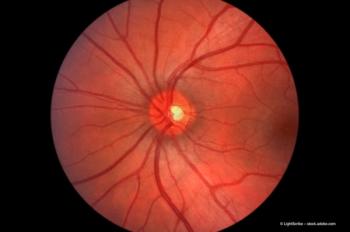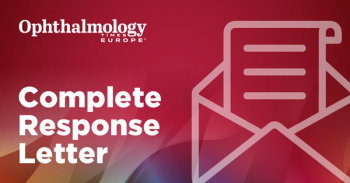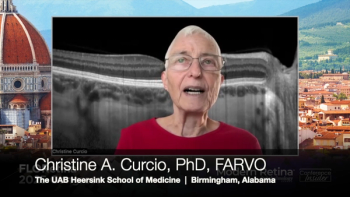
Sustained-Release Drug Delivery for Retinal Disorders
Considerations for treating retinal disorders with sustained-release drug delivery implants in an effort to address current treatment challenges in the field.
Episodes in this series

Albert J. Augustin, MD: The dexamethasone implant was the first approved drug therapy for retinal vein occlusion. At this time, we had no anti-VEGF [vascular endothelial growth factor] drugs approved, and dexamethasone was the first medical treatment. Before dexamethasone, we only had laser treatment. I would also like to mention the AR-13503 [SR implant], which is an inhibitor of Rho kinase and protein kinase. It is also a sustained-release implant, which is currently being investigated for the treatment of wet AMD [age-related macular degeneration] and DME [diabetic macular edema]. It is the first in ongoing human study of the safety of this implant. We cannot add more information at this time on this drug clinically because it’s still in phase 1. That’s why I would like Dr Korobelnik to say a few words on axitinib intravitreal implant, which is a sustained-release tyrosine kinase inhibitor. We don’t know much about this pathway so far. If we can at least antagonize it sufficiently to reduce the VEGF expression—maybe you can say a few words on this, Dr Korobelnik.
Jean-Franҫois Korobelnik, MD: I think you have said everything, Albert.
Albert J. Augustin, MD: You don’t have anything else to add?
Jean-Franҫois Korobelnik, MD: Not on this one, no.
Albert J. Augustin, MD: This is also for KSI-301…
Jean-Franҫois Korobelnik, MD: KSI is different.
Albert J. Augustin, MD: It is an anti-VEGF biopolymer conjugate, and an ongoing phase 1 trial, so we only have interim…
Jean-Franҫois Korobelnik, MD: It’s more advanced. Phase 2 for KSI-301 is positive, so they are now recruiting for phase 3. It’s interesting because we know VEGF inhibitor very well. This is a combination of a VEGF inhibitor plus a biopolymer, allowing a slow release of the inhibitor. It is promising. In the trials, they are exploring 1 injection every 24 weeks, so 1 every 6 months. If it works and is safe, that would be interesting, because it is a gel injection, so it should be safe. KSI-301 is a promising long-lasting VEGF inhibitor. I look forward to the phase 3 results.
Albert J. Augustin, MD: Then you have to say a few words about inflammation and KSI.
Jean-Franҫois Korobelnik, MD: Of course, it’s the same for all the devices. They may induce intraocular inflammation. Some may be related to debris, to the polymer, or to something that is going to last longer and induce immunogenicity, as we’ve said before. For safety regarding the drug, intraocular safety is something that we have not been using with the 3 old VEGF inhibitors that we have at the moment, so it’s something new. It’s not only intravitreal inflammation, but it’s also retinal inflammation and vasculitis that we have seen with brolucizumab. Now everybody is aware of that risk and is looking carefully at the safety of the retinal surface and in the retina for any new compound.
Albert J. Augustin, MD: That is why I am not so euphoric, and a little skeptical, especially when we inject the gel into the eyes. Let’s wait and see for phase 3. This is always the conclusion, if we speak about drugs and drug development.
Transcript edited for clarity.
Newsletter
Get the essential updates shaping the future of pharma manufacturing and compliance—subscribe today to Pharmaceutical Technology and never miss a breakthrough.

































